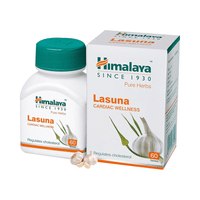Rs.53.90for 1 strip(s) (10 capsules each)
food interaction for Clopikind-AS
alcohol interaction for Clopikind-AS
pregnancy interaction for Clopikind-AS
lactation interaction for Clopikind-AS
food
alcohol
pregnancy
lactation
Clopikind-AS 75 Capsule is to be taken with food.
Taking it with food helps to avoid stomach upset.
None
Taking it with food helps to avoid stomach upset.
None
CAUTION
It is unsafe to consume alcohol with Clopikind-AS 75 Capsule.
UNSAFE
Clopikind-AS 75 Capsule is unsafe to use during pregnancy as there is definite evidence of risk to the developing baby. However, the doctor may rarely prescribe it in some life-threatening situations if the benefits are more than the potential risks. Please consult your doctor.
CONSULT YOUR DOCTOR
Clopikind-AS 75 Capsule is probably unsafe to use during breastfeeding. Limited human data suggests that the drug may pass into the breastmilk and harm the baby.
CONSULT YOUR DOCTOR
SALT INFORMATION FOR Clopikind-AS
Aspirin(75mg)
Uses
Aspirin is used for Angina (heart-related chest pain), heart attack and Stroke. It decreases the chances of having another heart attack or stroke from a disease related to your heart or blood vessels.
How it works
Aspirin is a non-steroidal anti-inflammatory drug (NSAID) with anti-platelet action. It works by preventing platelets from sticking together which decreases the formation of harmful blood clots. This lowers the chance of heart attack or stroke.
Common side effects
Increased bleeding tendency, Nausea, Vomiting, Angioedema (swelling of deeper layers of skin), Gastrointestinal bleeding, Low blood platelets, Dyspepsia, Inflammation of the nose, Shortness of breath, Red spots or bumps, Agranulocytosis (deficiency of granulocytes in the blood), Aplastic anemia, Allergic edema, Anaphylactic reaction, Intracranial bleeding, Hemorrhagic vasculitis, Bronchospasm, Asthma attack, Menorrhagia (heavy menstrual bleeding), Stevens-Johnson syndrome, Lyell’s syndrome, Purpura, Erythema nodosum, Erythema multiforme
Clopidogrel(75mg)
Uses
Clopidogrel is used for heart attack, peripheral vascular disease and prevention of heart attack and stroke. It decreases the chances of having another heart attack or stroke in people at high risk of heart disease.
How it works
Clopidogrel is an antiplatelet medication. It works by preventing platelets from sticking together, thereby decreasing the formation of harmful blood clots. This lowers the chance of heart attack or stroke.
Common side effects
Abdominal pain, Stomach inflammation, Constipation, Skin rash, Blood in urine, Thrombotic thrombocytopenic purpura, Decreased blood cells (red cells, white cells, and platelets), Agranulocytosis (deficiency of granulocytes in the blood), Acquired hemophilia A, Vasculitis, Hypotension (low blood pressure), Aplastic anemia, Hypoglycemia (low blood glucose level), Hemorrhage, Vomiting, Nausea, Headache, Bruise, Dizziness, Diarrhea, Hematoma, Nosebleeds, Gastrointestinal bleeding, Dyspepsia, Low blood platelets, Intracranial bleeding, Stomach ulcer, Duodenal ulcer, Anaphylactic reaction
SUBSTITUTES FOR Clopikind-AS
52 Substitutes
52 Substitutes
Sorted By
 Rs. 121.25pay 45% more per Capsule
Rs. 121.25pay 45% more per Capsule Rs. 100pay 20% more per Capsule
Rs. 100pay 20% more per Capsule Rs. 100pay 21% more per Capsule
Rs. 100pay 21% more per Capsule Rs. 65pay 17% more per Capsule
Rs. 65pay 17% more per Capsule Rs. 55.58pay 3% more per Capsule
Rs. 55.58pay 3% more per Capsule
Expert advice FOR Clopikind-AS
- Aspirin helps prevent future heart attack and clot-related (ischemic) stroke.
- It is generally well-tolerated with minimum side effects.
- Take it with food to avoid an upset stomach.
- It may make you bleed more easily. Be careful while shaving, using sharp objects, or cutting fingernails or toenails.
- Inform your doctor if you notice blood in your vomit or have black/tarry stools.
- Stop taking Aspirin and tell your doctor if you have ringing in your ears, unusual bleeding, or nausea or vomiting that does not go away.
Frequently asked questions FOR Clopikind-AS
Aspirin
Q. How long should I take Aspirin for?
You will need to take Aspirin for the rest of your life unless stopped by your doctor.
Q. When will I feel better after taking Aspirin?
Aspirin is known to reduce the risk of heart attack and stroke. You may not feel any difference after taking Aspirin. Keep taking it as prescribed by your doctor to keep getting the benefits.
Q. How long does Aspirin take to clear from the body?
It takes around 10 days for Aspirin to get cleared from the body after completely stopping this medicine.
Clopidogrel
Q. What is Clopidogrel used for?
Clopidogrel is used to prevent formation of blood clots, thus reducing the risk of heart attacks or stroke. It facilitates smooth circulation of blood in the body by reducing the ability of the platelets to stick together, that could otherwise lead to formation of harmful clots in hardened blood vessels.
Q. Is Clopidogrel a blood thinner?
Yes, Clopidogrel is an antiplatelet medicine which is also known as a blood thinner. It makes your blood flow more easily through your blood vessels and prevents formation of harmful blood clots. This lowers your chances of heart attack or stroke.
Q. When should you take Clopidogrel?
You should take Clopidogrel exactly as prescribed by the doctor. You can take it with or without food, at any time of the day. However, it is important to take it regularly at the same time each day for best results. This will also help you to remember to take it daily.























